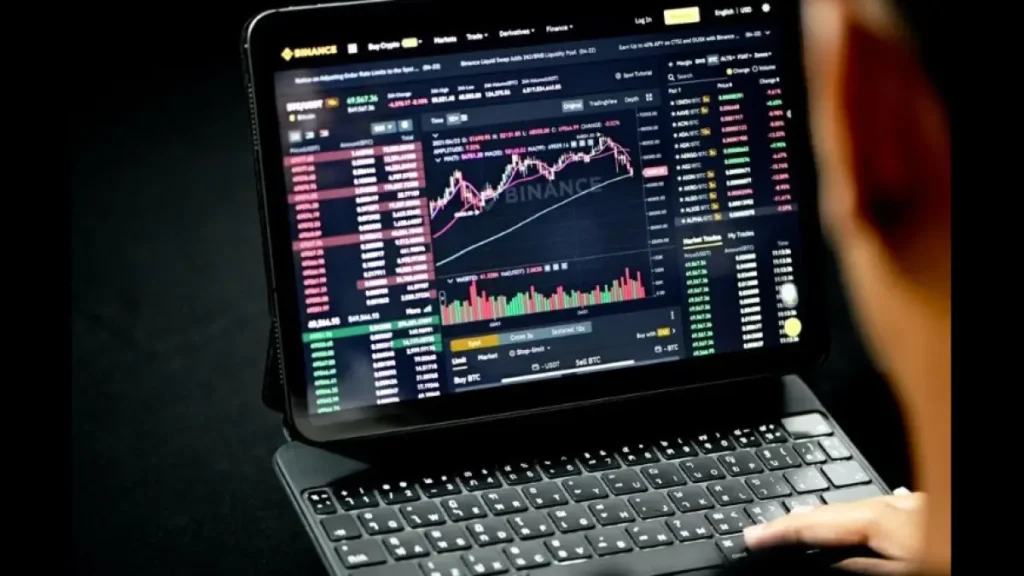UBS warns of Bitcoin and altcoin platform Grayscale. The size of Grayscale’s largest fund, the Bitcoin Trust (GBTC), risks being a problem for the market, according to UBS. Here are the details…
GBTC holds $11 billion worth of Bitcoin
The size of Grayscale’s Bitcoin Trust (GBTC) could pose a potential problem for the entire market, at least according to a UBS report. Grayscale’s passively investing fund, the Bitcoin Trust, holds more than 633,000 coins, which at today’s prices equates to about $11 billion and represents 3.3 percent of all mined coins. “As bitcoins still make up over 45 percent of stablecoins, the large size will pose problems for the entire market,” UBS wrote.
 Trader Wins 50x With This Altcoin On Binance!
Trader Wins 50x With This Altcoin On Binance!The bank’s analysis comes with questions revolving around the health of Grayscale’s parent company, Digital Currency Group. As we reported on Cryptokoin.com, the concerns first arose when DCG said it had $175 million in risk to FTX following the collapse of the Genesis Global Capital exchange. Genesis reportedly wants to raise $1 billion. It turns out that otherwise he could file for bankruptcy protection.
There are also reports that DCG is putting cryptocurrency news site CoinDesk up for sale. The New York Times said DCG hired Moelis & Company to explore options. One possible option mentioned by UBS was for DCG to benefit from the GBTC investment.
Largest holder of GBTC, Digital Currency Group
DCG is the largest owner of GBTC shares, with around 10 percent, according to Bloomberg data. Ivan Kachkovski, a strategist at UBS, wrote in a note that he could potentially decide to sell his assets to raise cash. “This stock is currently worth $600 million,” according to the analyst, meaning “12 times the quarterly average of daily trading volume.”

Shares in Grayscale’s Bitcoin and Ethereum products do not give their holders access to the underlying assets. Therefore, there is a disparity between the trading prices of these products and their net asset value (NAV). This is known as the difference between the premium or the value of the underlying assets and the market price of the assets. The premium in question turned into a discount in 2021. UBS, strategist, used the following statements:
The negative footing has recently widened further when Grayscale’s sister company, Genesis, within the Digital Currency Group, acknowledged a $175 million risk to the now-bankrupt FTX and suspended withdrawals from the high-yield deposit platform. He also warned that he would go bankrupt if he didn’t get $1 billion in new capital.

A bear market can be a big problem
GBTC’s NAV discount has expanded throughout the week. The product is trading at a -42.5 percent discount today, down from -40.54 percent on Monday. Grayscale’s other structured product, ETHE,’s NAV discount hit an all-time low of -45.66%. Kachkovski said Grayscale’s size could be extremely problematic in a bear market. Any sale extends the GBTC discount even further. However, it may not affect the Bitcoin price. However, if GBTC itself were to be liquidated, it could affect Bitcoin – because the fund rules stipulate cash payments to investors. The report includes the following statements:
We believe that the massive size of GBTC (633k BTC, i.e. 3.3% of all mined coins) will pose a problem for the entire market, as Bitcoin still accounts for over 45% of the space excluding stablecoins.
Analyst called out to Bitcoin investors: Do not panic
However, Kachkovski still does not seem to believe in the possibility of a liquidation. This is because DCG has netted $210 million from GBTC management fees. Most importantly, the fee is charged regardless of performance or NAV discount. Other products of the fund, including ETHE, bring in another $100 million a year. UBS also noted that the wording in the SEC filings does not imply that a shareholder vote could result in dissolution of the trust.

The investment bank’s endpoint against liquidation states that executing the discount would bring in about $440 million at best. This would be little more than double the annual income from the trust’s management fees. Also, Kachkovski assumes at this point that all BTCs have been sold at the current $17,000. While investors should be worried about these consequences, Kachkovski said there is no need to panic just yet.